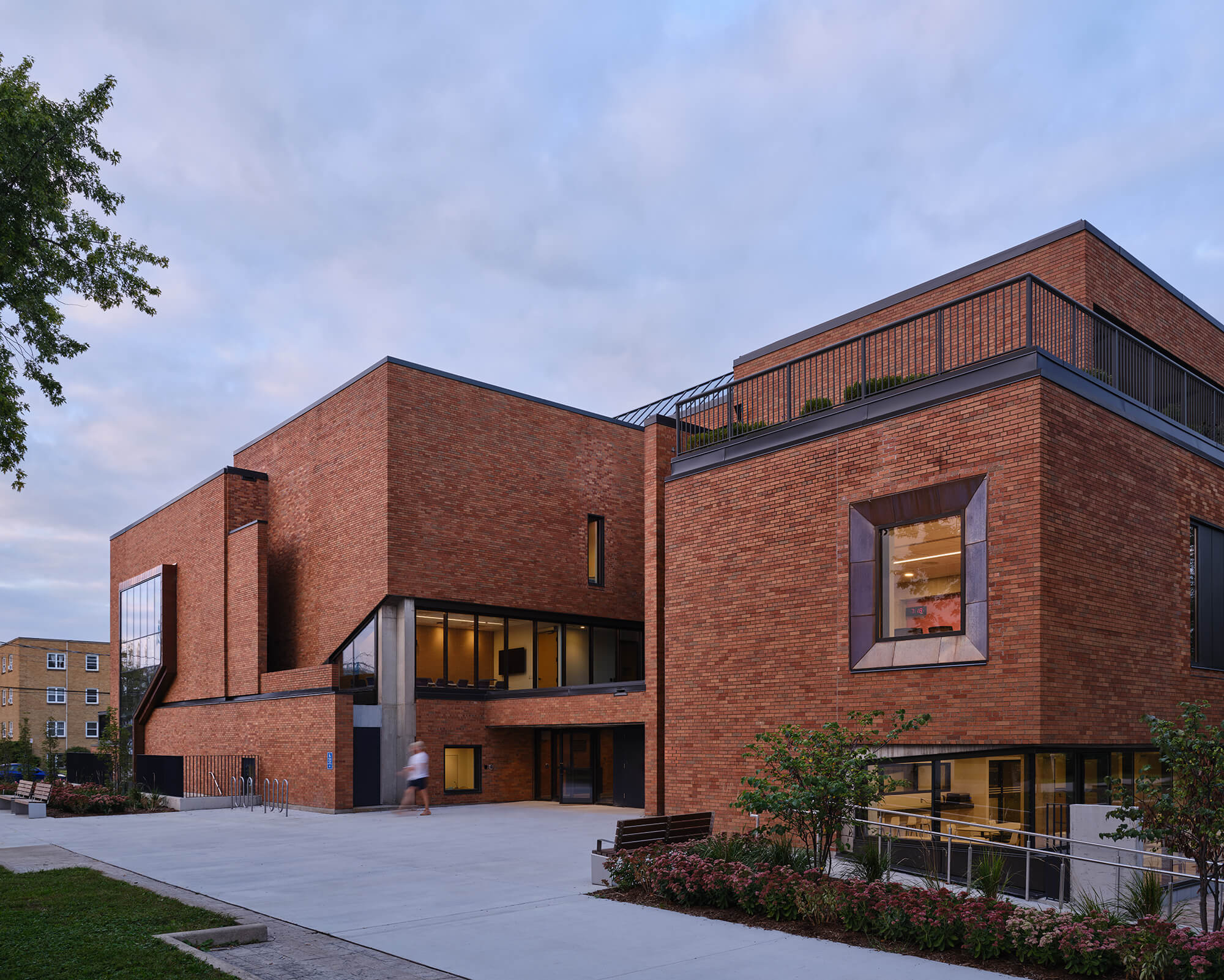University of Windsor’s Ron W. Ianni Building is a brick building with recognizably Brutalist forms located on the Ontario campus’s northern edge. The building, which houses the law school, was completed by Gordon S. Adamson & Associates in 1974. After years of wear and tear, the beloved facility deserved an upgrade.
Diamond Schmitt Architects, together with local office Di Maio Design Associates Architect, recently renovated the Brutalist structure ahead of the upcoming school year. The designers sought to increase natural light, improve accessibility, and add collaborative teaching and learning spaces while preserving its late modernist integrity.


“Transforming the University of Windsor’s Law Building is so much more than a renovation,” said Duncan Higgins, a principal at Diamond Schmitt. “The approach was to embrace the brutalist architectural character of the facility and its history on campus, while creating an open and collaborative space that offers flexibility for diverse modes of learning and supports the pedagogies of the 21st century.”
A Surgical Procedure
The Ianni Building encompasses approximately 68,000 square feet in a brick, 3-story envelope with bits of exposed concrete peppered here and there. Punched windows vary in shape and size across the building’s faces. They give passersby vignettes into the Faculty of Law’s inner workings.

The Ianni Building’s former mechanical room was opened up into a sun-filled space for studying. The former student commons, previously a sunken conversation pit with a tiled floor, was raised to be accessible to all students.
Opaque partition walls, that formerly divvied up breakout areas, were replaced with glass partition walls. This made the building more legible and navigable, the architects shared.
The stacks and study carrells inside the Ianni Building were relocated to the top and bottom floors. This opened up the central floor for a better entry condition, as well as reserve collection and active student workspace.
An open, convenience stair now connects all three floors. Other accessibility upgrades included, a new elevator and all-gender washrooms located on each floor.

A law school would be incomplete without rooms for hosting mock trials. One of these the Don Rodzik Moot Court, previously had no windows and relied on artificial lighting. New fenestration now pours natural light into the classroom slash courtroom.
Indigenous-led smudging ceremonies can now take place in the the Moot Court. The law school curriculum at University of Windsor places strong emphasis on working with Ontario’s Indigenous Peoples, namely the Three Fires Confederacy of the Ojibwa, Odawa, and Potawatomi.
In one of the mock court rooms a shoreline-inspired ceiling design references the building’s proximity to the Detroit River.

